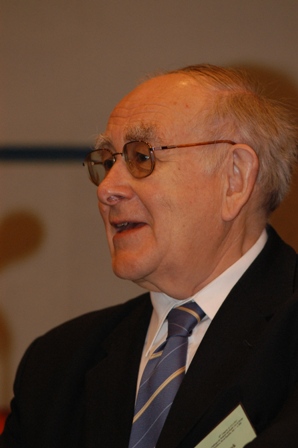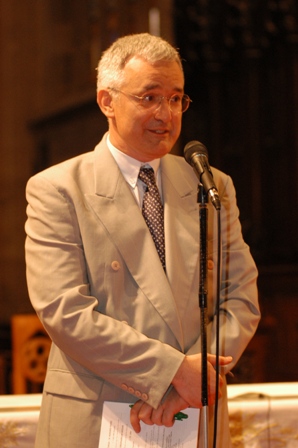


FINAL DOCUMENT
At the end of the Congress in Bratislava, attended by more than 350 medical doctors from 20 European countries, FEAMC presents to the doctors and to the society the following final declaration:
1. This is the second Catholic Doctors’ Congress celebrated in a former ‘communist’ country. After 15 years of regained freedom, we have to face a decay of moral standards, sometimes copying the worst of the western mentality of consumerism, individualism, and utilitarianism.This is leading to an increase of moral problems, a degradation of lifestyles, a corruption of health services and lack of attention to the most vulnerable in society: the poor, the elderly, the disabled, and the chronically ill.
Although we cannot deliver everything to all, we have to emphasize the fundamental right of every human person to basic health care. Only respect of each person, created in the image of God, may prevent a sort of social euthanasia, with people suffering, or even dying because necessary health services are unaffordable for them.
2. The term “pre-embryo” is a conceptual and linguistic construction, without any scientific basis, created merely for pragmatic and utilitarian purposes.
3. Scientific evidence shows that embryonic stem cells will not deliver the promised benefits and may cause substantial harm to the recipient. Progress in the development of adult stem cell technology appears to produce effective benefits, which are ethically acceptable.
4. Methods of assisted reproduction face increasingly severe ethical problems and cause tangible risks.
5. Secular society argues that legal abortion is needed to prevent the consequences of illegal abortion. Official statistics from Poland clearly show reduced maternal mortality, reduced miscarriages and reduced prematurity since the abolition of liberal abortion laws in 1993.
6. It is essential to put into the practice of health care the right of the child to grow up and to discover the world optimally.
7. A drug addict is a sick person and has a place in our society. Medical psychosocial and religious help may offer him inspiration and support.
8. Medical action must be based not only upon rights and duties, but also upon grace and love, passing from occupation to vocation, and accompanying patients until the end of their life.
9. Palliative care comprises optimal medical, nursing, psychological, social and spiritual care, respecting human dignity at the end of life.
Our first Congress of the new Millennium is an opportune time to renew our pledge in the service of the life, dignity and rights of every human being in the spirit of Evangelium Vitae, the magna carta of catholic doctors and an important source of inspiration for all health care workers of good will.
Bratislava, July 4, 2004








